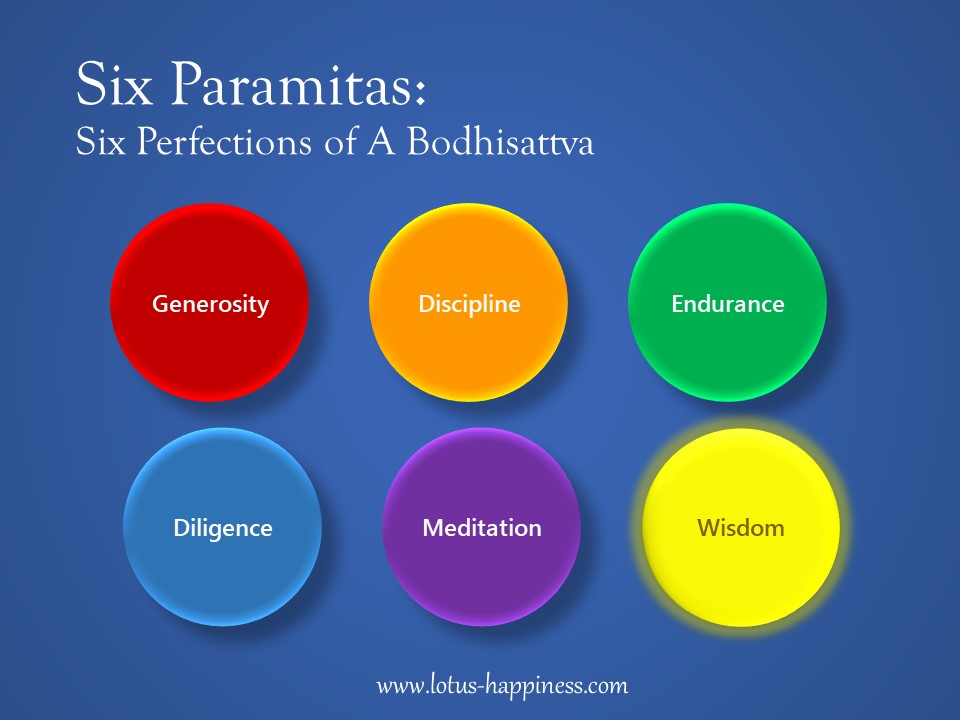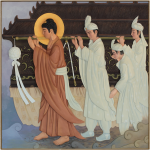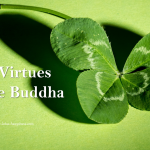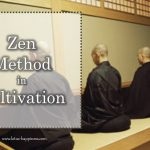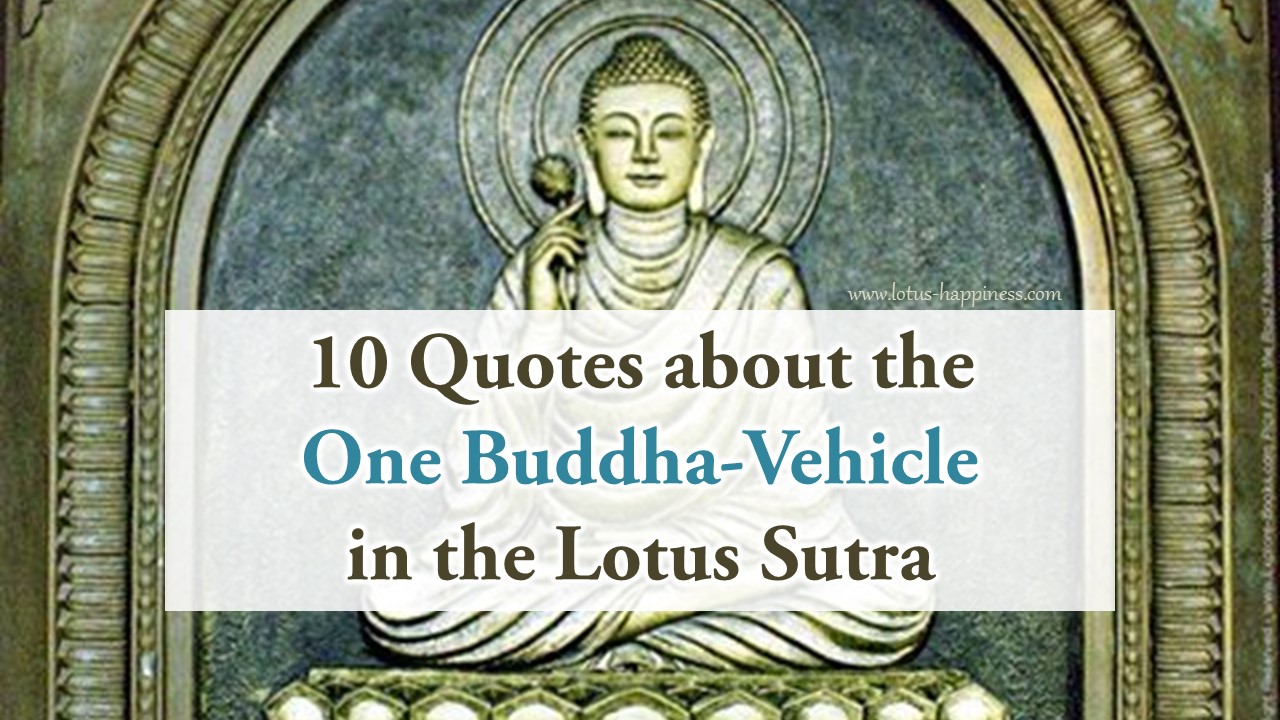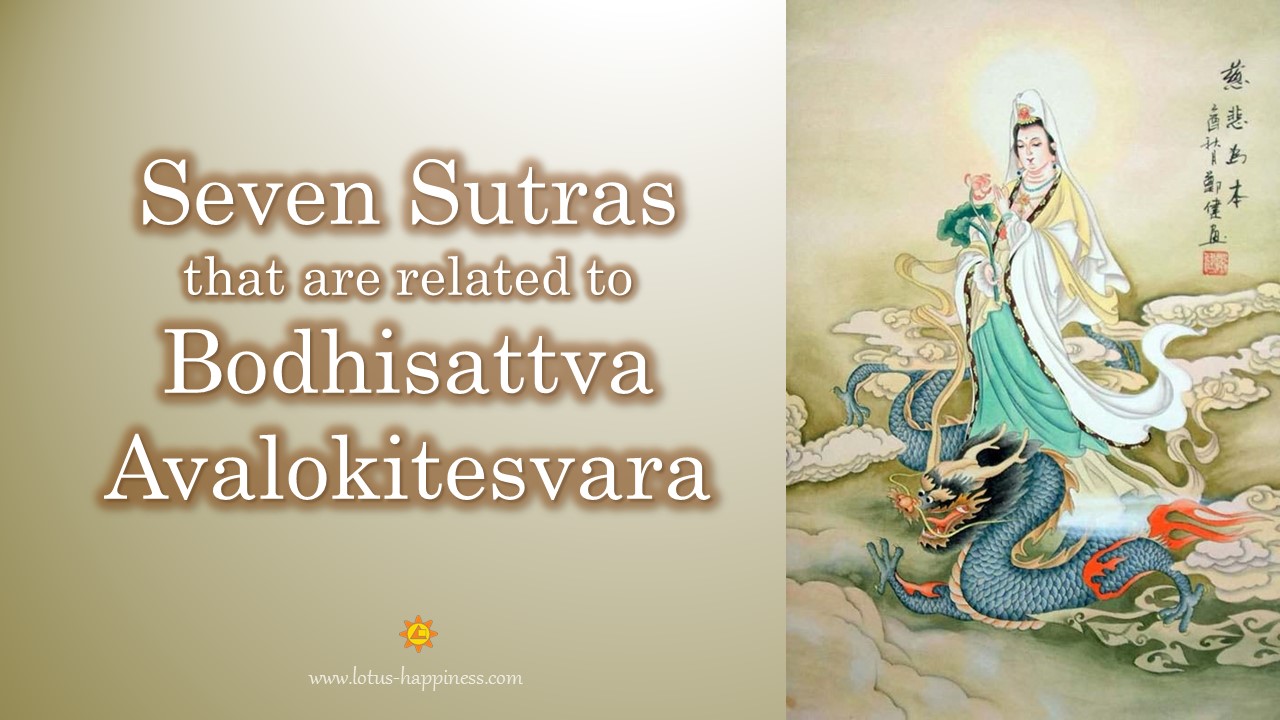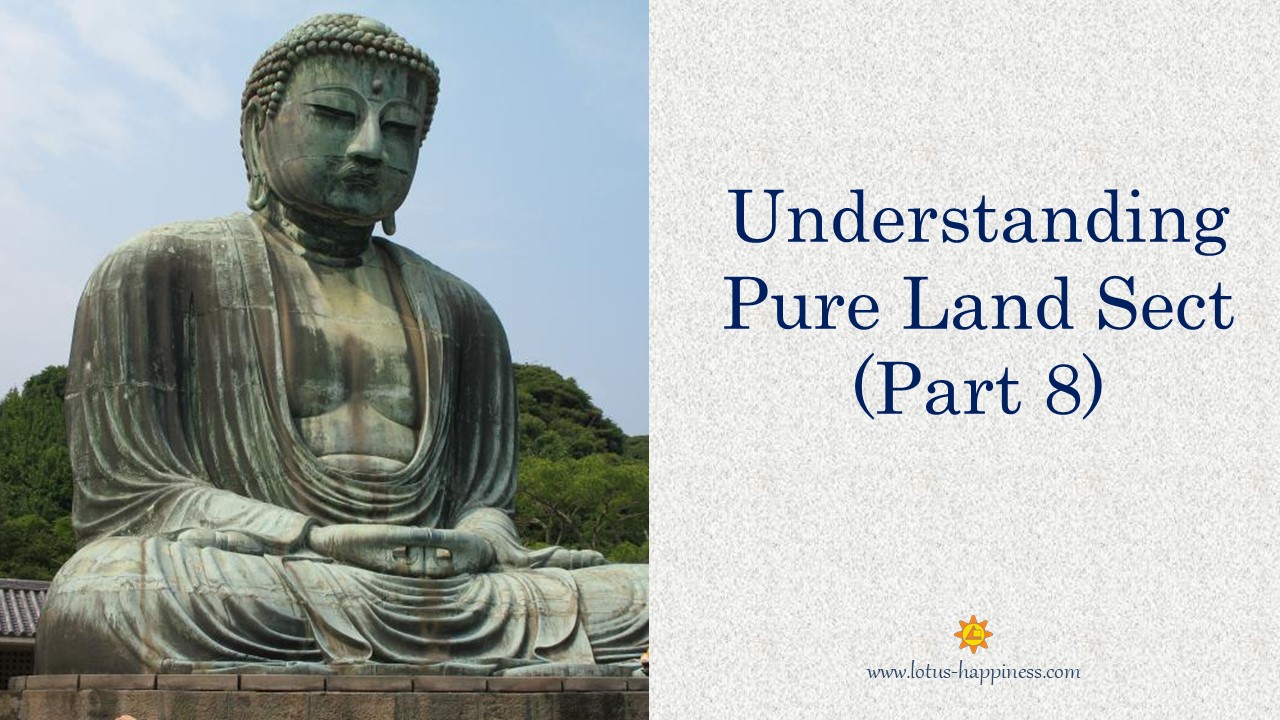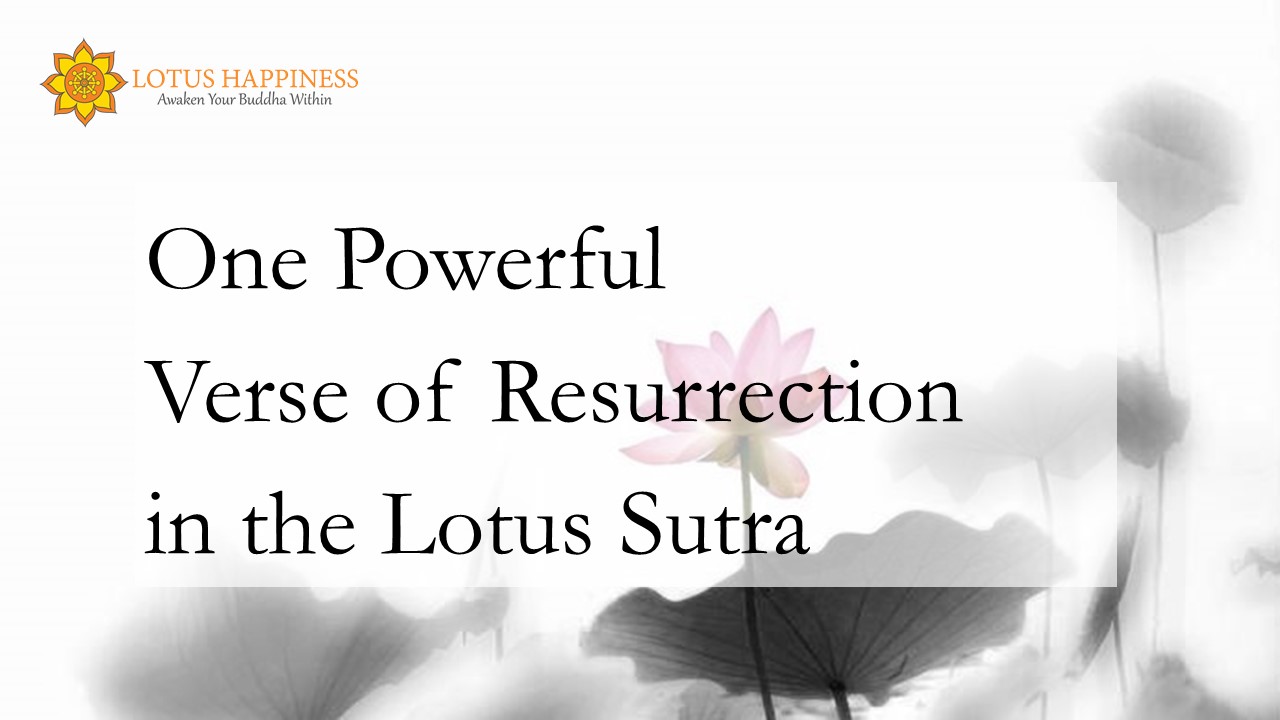
Six Paramitas
Six Paramitas literally means Six Perfections; the six virtues that need to be continuously cultivated and perfected as part of a bodhisattva’s practice. The Sanskrit word “Paramita” means “perfection” or “completeness”.
What are Six Paramitas?
The Six Paramitas are Generosity, Discipline, Endurance, Diligence, Meditation, and Wisdom.
#1 – Perfection of Generosity (Dāna Pāramitā ~布施)
Giving is a virtue; it is an expression of loving-kindness, charity, and benevolence. There is no limit to what we can give, be it time, presence, money, or even words of praise and encouragement. As the saying goes, “As you give you shall receive.” Giving creates the cause for you to receive more.
The magic of giving lies in the creation of eternal bond and connection between a giver and a receiver. In the Lotus Sutra, various living beings give offerings to the Buddha so as to create meritorious deeds and merits. In fact, by giving to the Buddha, be it a pressed palm, a praise or even a heartfelt admiration, the seed of Buddhahood has been planted.
In Chapter 7: Parable of Imaginary City, all the Brahma kings in the ten directions came to give praise and offerings to the Buddha. According to the Lotus Sutra, the Brahma somehow have correlations with the God-heads in Hinduism, Christianity, and Islam. I shall explain more about that in my future posts.
Here are some examples of bodhisattvas practising Dana Paramita:
Lending a helping hand to those in need is a form of giving. Bodhisattva Avalokitesvara (Guan Yin) is an example of a bodhisattva who perceives the cries of others and help those who call upon her name through her divine powers.
“Do not have doubts!
Always keep in mind
the holy and pure Bodhisattva Avalokitasvara.
He is the one in whom you can take refuge
in the midst of suffering, agony, death, and calamity. (Lotus Sutra 25: 2.23)
Bodhisattva Manjushri was a teacher of Bodhisattva Maitreya, who is named Seeker of Fame due to his predilection of seeking fame and fortune. However, as a result of his meritorious deeds of generous giving through charitable works and philanthropy, he is able to attain Buddhahood as well.
“As a consequence,
he was named Seeker of Fame.
Yet, because of his charity and philanthropy,
he was able to meet immeasurable Buddhas. (Lotus Sutra 1: 4.34)
#2 – Perfection of Discipline (Śīla Pāramitā ~ 持戒)
Also known as austerity, morality, proper conduct, or upholding the precepts, Sila Paramita teaches one to abstain from performing actions that are harmful to others. For example, upholding Five Precepts (no killing, stealing, lying, sexual misconduct, drinking alcohol) is one of the methods of perfecting the virtue of Sila Paramita.
Foremost in ascetic practices, Mahakashyapa is the embodiment of discipline. A person who abides rules and order, he is up to the task of leading the First Buddhist Council. In Chapter 4: Faith and Understanding, Mahakashyapa relates his awakening through his narration of the Parable of the Father and His Lost Son. In this parable, he compares the practising of early Buddhism (eliminating desires, no self etc) to “cleaning of excrements”, which means something that has limited to no esteemed values.
#3 – Perfection of Endurance (Kṣānti Pāramitā ~ 忍辱)
The quality of endurance encompasses a spectrum of similar virtues such as patience, tolerance, forbearance, resilience, perseverance, and unconditional acceptance.
In Chapter 20, Shakyamuni Buddha relates his past life as Bodhisattva Never Disrespectful who embodies the virtue of endurance.
“For many years, he continued as such and was always being upbraided. He never, however, let anger get the better of him. Whenever he uttered the same phrase, ‘You will surely become Buddhas!’ some people would take sticks of wood, tiles, or stones to pelt at him. To escape the beating, he would run away but he continued shouting at the top of his voice: ‘I will never treat you with disrespect for all of you will surely become Buddhas!’ By virtue of him repeating the same phrase, arrogant monks, nuns, lay male disciples, and lay female disciples called him Never Disrespectful. (Lotus Sutra 20: 1.10)
Endurance is the “signature” virtue of Shakyamuni Buddha. One of the supporting evidence is the name of his Buddha-land, Saha (a Sanskrit word which means endurance).
#4 – Perfection of Diligence (Vīrya Pāramitā ~ 精进)
Diligence, vigor, energy, efforts, and hard work are some of the most crucial ingredients in achieving success in any endeavors.
Another one of the shining qualities of Shakyamuni Buddha is diligence. In Chapter 9, Shakyamuni Buddha narrates his past life during the time of King of Emptiness Buddha. Both he and Ananda concurrently conceived the aspiration for Supreme Perfect Enlightenment. Shakyamuni Buddha, however, attained Buddhahood earlier than Ananda by virtue of his dogged determination, diligence, and perseverance. Ananda, owing to his delight of the Law, chooses to protect and uphold the Buddha’s teachings lifetime after lifetime.
Meanwhile, the Bhagavat, having perceived the thoughts of these bodhisattvas, responded: “O virtuous men! When Ananda and I were at the place of King of Emptiness Buddha, both of us conceived the aspiration to attain Supreme Perfect Enlightenment. Ananda was always delighted in the wide knowledge of the Law while I constantly advanced the practice diligently. Therefore, I have already attained Supreme Perfect Enlightenment while Ananda protects and upholds my Law. Similarly, he will protect the Treasury of the Law of many Buddhas in the future, teaching, transforming, and leading multitudes of bodhisattvas. Such was his original vow and hence this is his prophecy.” (Lotus Sutra 9: 2.2)
#5 – Perfection of Meditation (Dhyāna Pāramitā ~ 禅定)
In the Lotus Sutra, two general types of meditation are mentioned: Dhyana and Samadhi. In Buddhism, cultivation of the mind is of utmost importance because it enables one to develop profound wisdom, which in turn, will guide one toward the path of Supreme Perfect Enlightenment. It is no coincidence, therefore, that the practice of mindfulness meditation is so popular in Western Buddhism. I am confident that the practice of meditation will become a zeitgeist of the millennium in the arena of faith and spirituality.
Dhyana means “concentration” or “focus”. By having clarity and insight, one is able to identify the supreme path of happiness, peace, and freedom.
Samadhi means “single-pointed concentration”. This is a type of meditation commonly practiced by innumerable great bodhisattvas. Many different types of Samadhi are mentioned in the Lotus Sutra: the Samadhi of the Law of Lotus, Samadhi of the Sanctuary of Immeasurable Meanings, Samadhi of the Revelation of All Forms etc. In Chapter 24, Bodhisattva Wonderful Music is said to have mastered 16 types of Samadhi.
Bodhisattva Universal Worthy, also known as the Bodhisattva Samanthabadra, is a bodhisattva whose strength is in meditation, vows, and actions. In the closing sutra – The Sutra of Meditation on Bodhisattva Universal Worthy – the Buddha expounds the methods of meditation, visualization, and repentance practiced by Bodhisattva Universal Worthy for people who wish to quickly attain Supreme Perfect Enlightenment without cutting off from the five desires. This practice is most suitable for people who have a myriad of desires and who are having difficulty disengaging from desires (which include the positive and beneficial desires). Hence, as you shall see, it is no surprise that both Ananda and Bodhisattva Maitreya are the ones who joyfully receive this teaching from the Buddha.
After the Buddha had spoken these words, ten thousand heavenly sons received the Pure Eyes of the Law. Having heard the Buddha’s teaching, many great bodhisattvas, such as Bodhisattva Maitreya and Ananda, accepted and practiced the teaching joyously. (MBUW 9.20)
#6 – Perfection of Wisdom (Prajñā Pāramitā ~ 般若)
Buddhism is indeed Wisdom. This wisdom does not mean any secular wisdom, it means the wisdom of the Law of Supreme Perfect Enlightenment. People of different faith also happen to practice the first five paramitas in some ways or another; except the wisdom of Buddhahood. This brings us to mind the coined name “Wisdom 2.0”. Isn’t it wonderfully relevant and appropriate?
The following quote specifically states that “with the exception of wisdom” which infers that this very wisdom is the prerogative of the Buddha’s teaching:
“Suppose there are virtuous men and women who were to practice Five Paramitas—the paramita of generosity, the paramita of morality, the paramita of perseverance, the paramita of diligence, and the paramita of meditation, with the exception of the paramita of wisdom—over a period of eighty trillion nayuta kalpas for the goal of Supreme Perfect Enlightenment, the merits they receive will not equal even a hundredth, a thousandth, or a part of hundreds of thousands of millions of billions of the benefits mentioned previously. Indeed, the understanding of this is beyond the expression of mathematical calculations, parables, metaphors, and similes. (Lotus Sutra 17: 2.2)
Every bodhisattva and Buddha’s disciples have their distinctive strengths, and wisdom is the predominating strength of both Bodhisattva Manjushri and Shariputra. Meditation and wisdom work hand-in-hand with each other. Regular practice of meditation helps tremendously in elevating wisdom and enlightenment.
To gain further insights of the Six Paramitas as expounded in the Lotus Sutra, here are the 6 notable quotes:
#1 Six Paramitas + Law of Buddhahood = The Greatest Virtues
“Therefore, let me repeat this: after the parinirvana of Tathagata, if there are people who are able to accept, uphold, read, recite, and preach for others, copy the sutra themselves or lead others to copy, and make offerings to the scrolls of sutras, they no longer need to build pagodas, temples, or monasteries as offerings to the community of monks. How much more so if there are people who are able to embrace the Lotus Sutra and give offerings, observe the precepts, practice perseverance, diligence, focused meditation, and wisdom at the same time! Their virtues will be the foremost! The blessings and virtues of these people will be infinitely boundless—as immeasurable as the open space in the east, west, south, and north; in the four intermediate directions; and in the zenith and nadir. As such, they will speedily attain the perfect wisdom. (Lotus Sutra 17: 3.7)
#2 Shakyamuni Buddha Practiced the Six Paramitas in His Past Life
“Wishing to fulfill the Six Paramitas, I diligently practiced generosity by giving alms such as elephants, horses, seven rare objects, countries, wives, children, maids, servants, my own head, eyes, marrow, brain, and my own flesh and limbs without being parsimonious. I did not hesitate to sacrifice my life either. (Lotus Sutra 12: 1.2)
#3 Six Paramitas is the Ox Carriage (Parable of the Blazing House)
“If there are living beings who, having accepted and believed in the Buddha-Bhagavat upon hearing the teaching of the Law, practice the Way diligently to seek the perfect wisdom—that is the Buddha-Wisdom, the Natural Wisdom, the wisdom without a teacher and the powerful and courageous insight of Tathagata—these compassionate and merciful people strive to bring peace and happiness to immeasurable living beings, as well as to benefit the heavenly gods and humans with the goal of saving and liberating all of them. These people are practicing the Great Vehicle, namely the Vehicle of bodhisattva. Because bodhisattvas seek this vehicle, they are known as mahasattvas. They are like the children who left the blazing house to receive the ox carriages. (Lotus Sutra 3: 4.25)
#4 Practicing the Six Paramitas Can Also Result In Buddhahood
“During that age, King of Majestic Voices Buddha preached the Law for heavenly gods, humans, and asuras. For those who sought to become shravakas, he expounded the teaching of achieving nirvana—the Four Noble Truths—so as to deliver them from birth, old age, illness, and death. For those who sought to become pratyekabuddhas, he expounded the teaching of the Twelve-Linked Chains of Causation. For bodhisattvas, he expounded the teaching of the Six Paramitas so as to guide them in perceiving the ultimate Buddha-Wisdom, leading them in attaining Supreme Perfect Enlightenment. (Lotus Sutra 20: 1.3)
#5 Practicing Paramitas Pales In Comparison with Listening to the Discourse in Eternal Lifespan of Tathagata
Thereafter, the Buddha spoke to Bodhisattva-Mahasattva Maitreya: “O Ajita! If there are living beings who are able to believe and understand even for a moment upon hearing the eternal lifespan of the Buddha, the merits they receive will be boundless.Suppose there are virtuous men and women who were to practice Five Paramitas—the paramita of generosity, the paramita of morality, the paramita of perseverance, the paramita of diligence, and the paramita of meditation, with the exception of the paramita of wisdom—over a period of eighty trillion nayuta kalpas for the goal of Supreme Perfect Enlightenment, the merits they receive will not equal even a hundredth, a thousandth, or a part of hundreds of thousands of millions of billions of the benefits mentioned previously. Indeed, the understanding of this is beyond the expression of mathematical calculations, parables, metaphors, and similes. (Lotus Sutra 17: 2.1 – 2.2)
